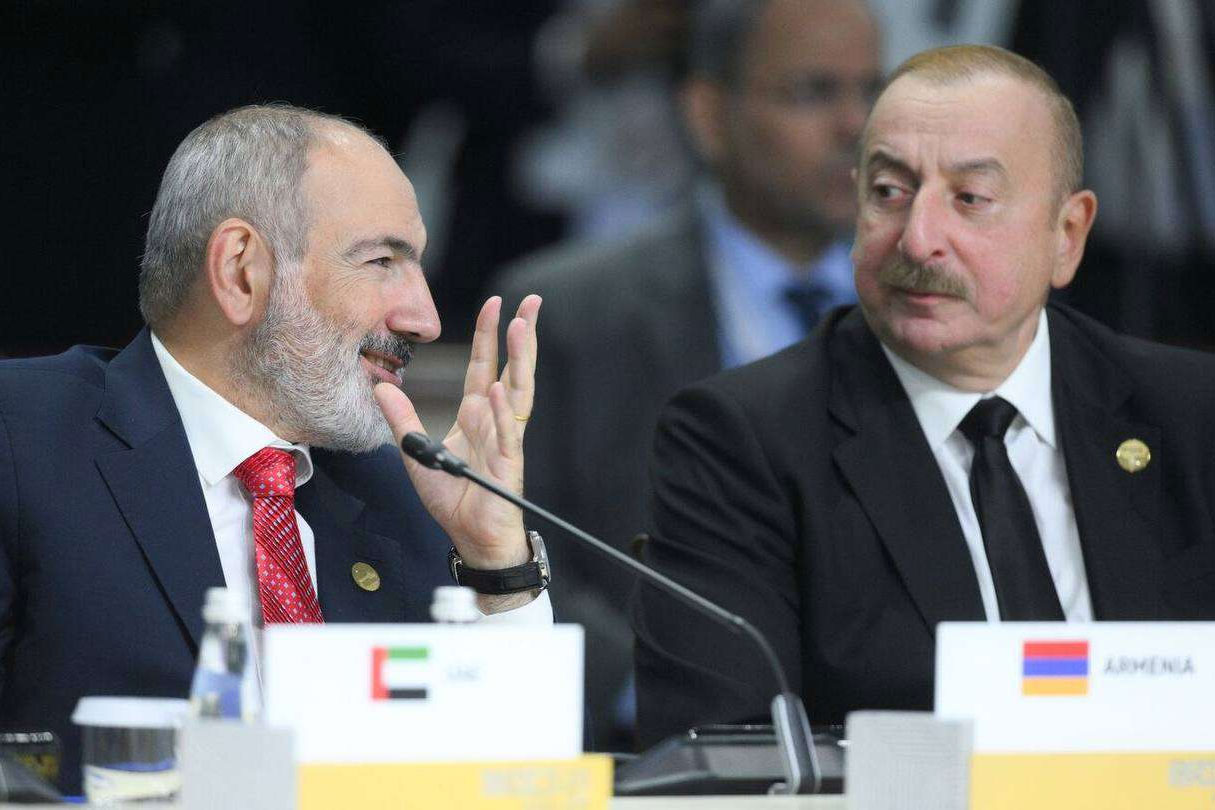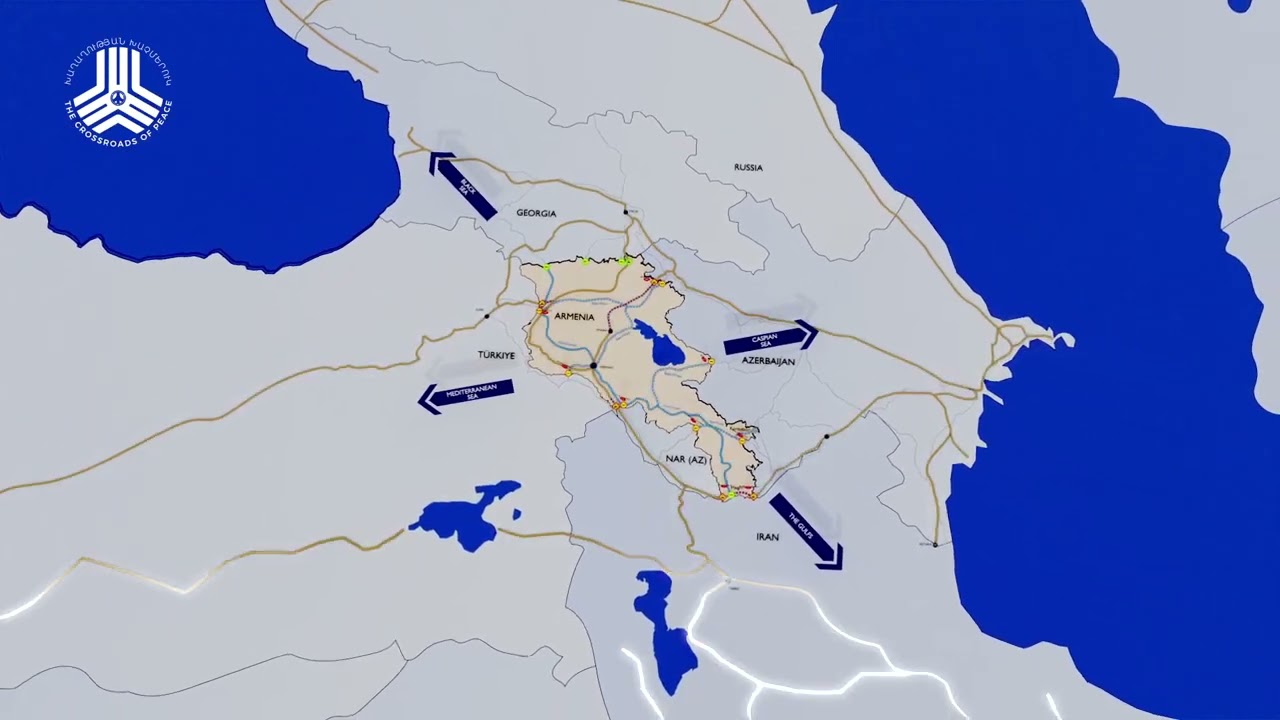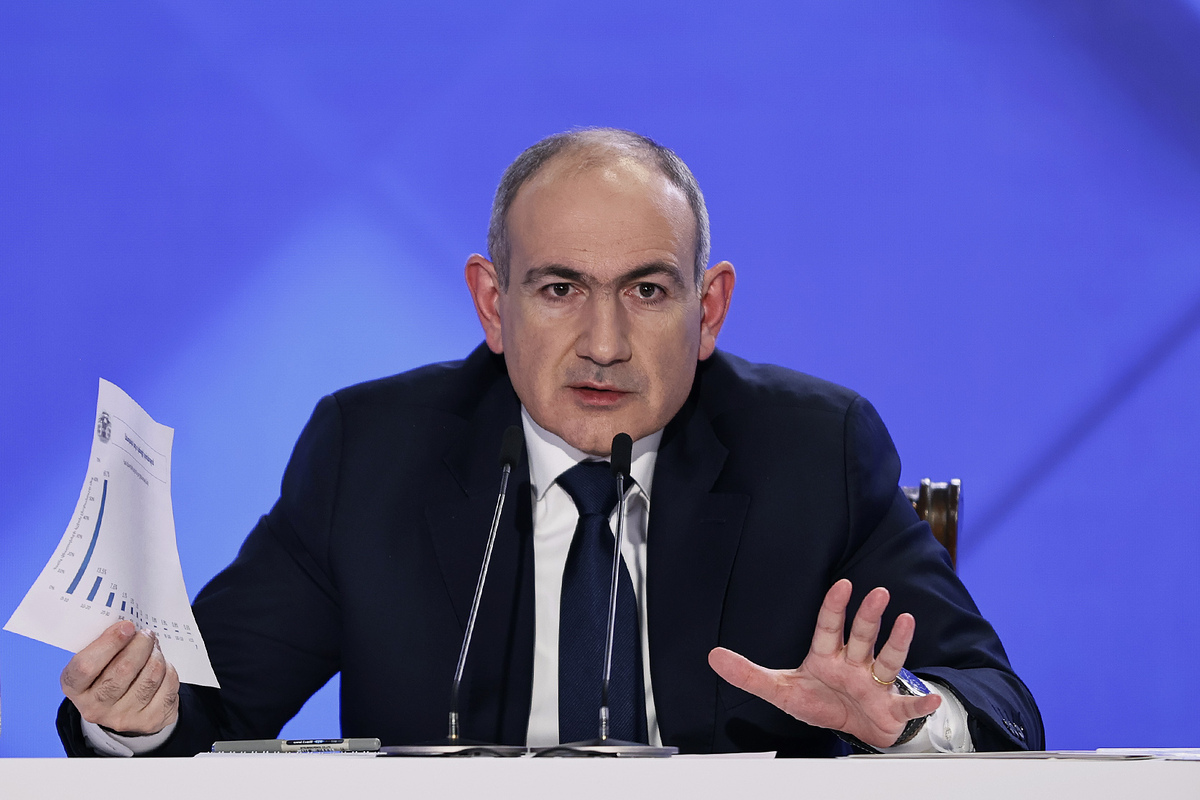'Russian mediation unlikely—we've felt its consequences firsthand,' says Armenian parliament speaker
Briefing of Armenian parliament speaker
Armenian National Assembly Speaker Alen Simonyan doubts that Yerevan would be interested in Russia’s offer to mediate Armenia-Azerbaijan negotiations. Speaking at a briefing, he said that Armenia would discuss any concrete proposals but recalled the negative impact of past Russian mediation efforts:
“Our previous experience has left very bad memories. To this day, key issues remain unresolved. For example, Russia’s stance on Azerbaijani forces that entered Armenian territory—both within the framework of the CSTO [a Russia-led military alliance that includes Armenia] and under the Armenia-Russia interstate treaty [which obligates Moscow to assist its strategic ally].”
Simonyan also cited the 9 November 2020 ceasefire agreement with Azerbaijan, brokered by Russia, questioning Moscow’s commitment:
“Where are Russian peacekeepers now? Where are the Armenians who lived in Nagorno-Karabakh? We have felt the consequences of Russian mediation firsthand—on our own skin, on our [deceased] children. This pain has not passed. Russia will have to make enormous efforts to convince the Armenian people of its sincerity.
Coming every 100 years with the slogan of ‘protecting Armenia,’ turning Armenia, the Armenian people, and our children into bargaining chips for greater interests—then returning with a kind expression and saying, ‘We are here to save you again’—sorry, but for me, this is unacceptable. We cannot afford such a ‘luxury’ anymore.”
- “There can be no ‘Western Azerbaijan’ on Armenian territory” and other statements by Pashinyan
- EU extends Armenia border monitoring mission for two more years – what does it mean?
- ‘Armenia must decouple from Russia without collapse’: view from Yerevan
Does Baku inform Moscow about peace talks?
Armenian Parliament Speaker Alen Simonyan recalled that Armenia has presented Azerbaijan with a package of proposals for a peace treaty but has yet to receive a response. He suggested that this delay might be linked to the growing tensions between Azerbaijan and Russia.
According to him, no regional development happens without “either positive or negative mediation and at least attempts at interference” from major powers:
“The alliance between Azerbaijan and Russia plays a significant role and has influenced all recent events. As an example, I can point to Azerbaijan’s willingness to negotiate in certain locations and its refusal to do so in others.”
When asked whether Baku coordinates Armenia’s proposals with Moscow, Simonyan said he could neither confirm nor rule it out:
“I believe Azerbaijan understands that Armenia’s independence, sovereignty, and future—as well as Azerbaijan’s sovereignty and future—are all interconnected. Their resolution is in our hands. Today, we have a historic opportunity to settle all issues once and for all and offer future generations a chance for peaceful coexistence.”
Armenian speaker: ‘Azerbaijan’s position is concerning’
Parliament Speaker Alen Simonyan does not believe Armenia-Azerbaijan negotiations have reached a deadlock, noting that the border delimitation and demarcation process is still ongoing.
“However, the Azerbaijani side has not responded to our peace agreement proposal for the past three months. This is concerning, and we are discussing it with all our international partners. I believe Azerbaijan’s participation in the peace process would be beneficial,” he said.
Simonyan stressed that Armenia is not misleading anyone, a fact recognized by its international partners:
“Armenia has proposed concrete mechanisms to Azerbaijan [for achieving peace]. It is ready to discuss them. The goal of both the Armenian government and society is clear—establishing peace.”
‘No matter what happens, Azerbaijan will claim it got corridor’
Speaking on the unblocking of regional transport routes, Armenian Parliament Speaker Alen Simonyan reaffirmed that Armenia will not grant Azerbaijan an extraterritorial road to connect with Nakhichevan. Baku has demanded that Armenia relinquish control over the route, but Simonyan assured journalists that discussions are focused on reopening regional communications within the sovereignty of the countries they pass through.
He recalled that after the autumn 2024 meeting between Armenian Prime Minister Nikol Pashinyan and Azerbaijani President Ilham Aliyev in Kazan, Yerevan submitted concrete proposals to Azerbaijan regarding transit routes. However, no response has been received. Simonyan said that Armenia has proposed solutions for both freight and passenger transport.
Commenting on Azerbaijan’s use of the term “Zangezur Corridor” when referring to these routes, Simonyan remarked:
“No matter what the sides agree on, regardless of how events unfold, Baku will call the route a ‘corridor’ and say: ‘We got a corridor.’”
He suggested that the corridor narrative was introduced as a pretext to deploy Russian troops in the area. Meanwhile, Armenian authorities believe that Russia’s monitoring role—outlined in the 9 November 2020 ceasefire statement—can be carried out remotely, such as through surveillance cameras, rather than requiring a physical presence.
‘Risk of escalation remains high‘
When asked whether there is currently a risk of escalation, Armenian Parliament Speaker Alen Simonyan responded that since 2020, Armenia’s authorities have consistently operated under the assumption that escalation is always possible.
“We bought a few vehicles, while Azerbaijan is purchasing weapons worth billions—enough to wage war against several major countries. Yet, we are accused of acquiring a few armored vehicles,” he said.
At the same time, Simonyan dismissed Azerbaijan’s attempts to portray Armenia as the aggressor on the international stage, calling them unsuccessful:
“The entire world says, ‘We see and we know that nothing like that is happening.’ In my meetings with international partners, I have sensed overwhelmingly negative sentiment regarding Azerbaijan’s actions.”
Briefing of Armenian parliament speaker
Briefing of Armenian parliament speaker






















